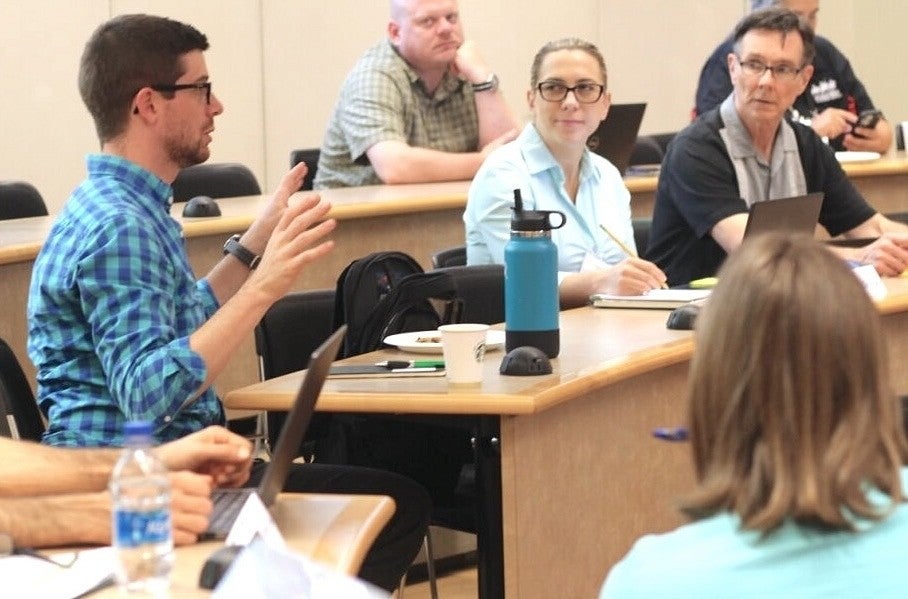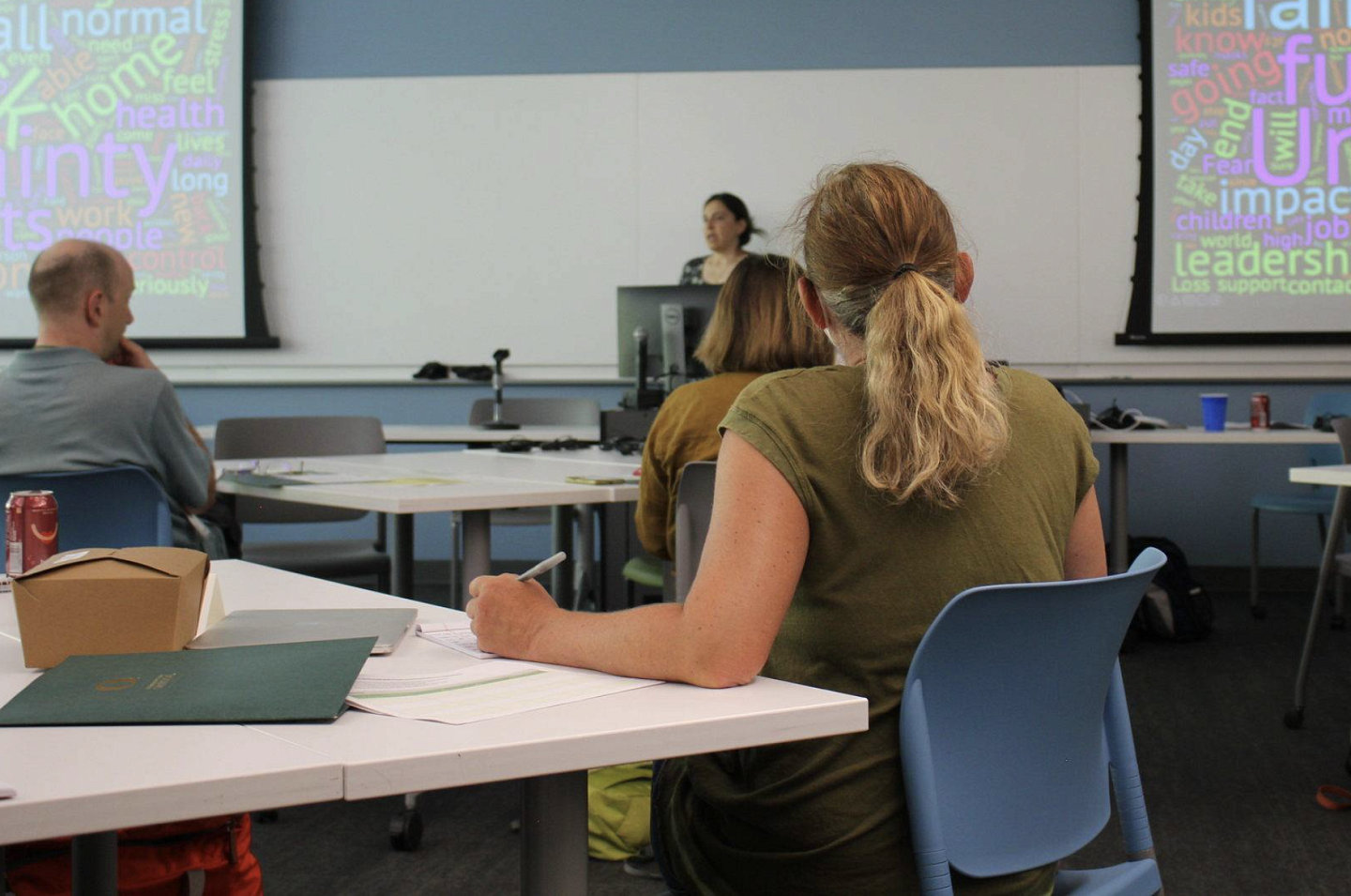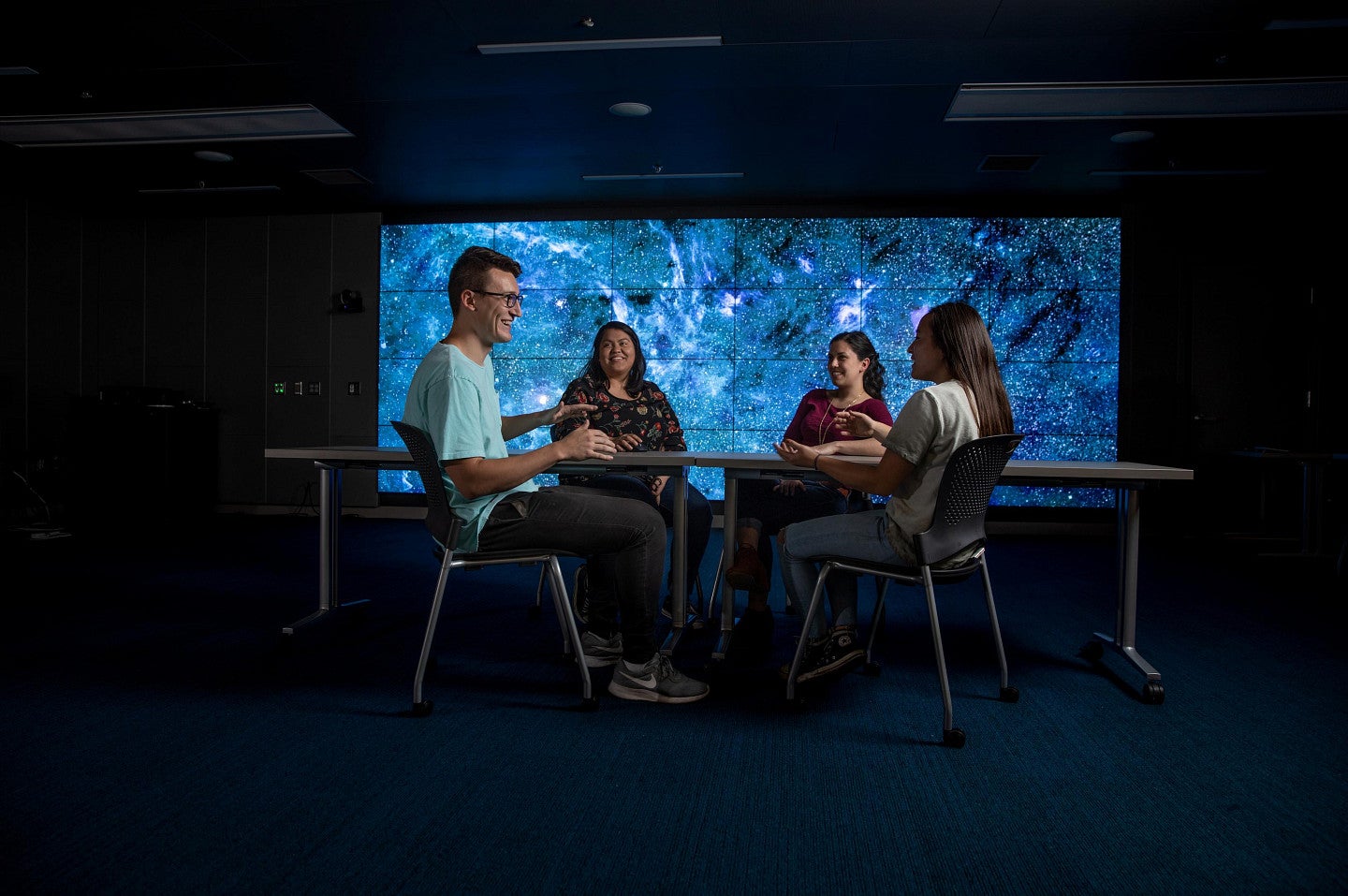
UO Summer Teaching Institute
TEACHING IN THE AGE OF ARTIFICIAL INTELLIGENCE | JULY 15-19
The UO Summer Teaching Institute is sponsored by the Office of the Provost and hosted by the Teaching Engagement Program and UO Online that convenes faculty for an intensive, multi-day focus on teaching.
This week-long, in-person event brings faculty together from all schools and colleges for inspiration, collegial connection, critical conversations, and creation of new teaching materials. Faculty participate in workshops, presentations, discussions, and working sessions designed to bring UO's teaching community together around emerging topics.

2024 Institute
This year's UO Summer Teaching Institute brings faculty together around a single theme: the rapid rise of Generative Artificial Intelligence as it impacts teaching and learning. We’ll consider GenAI’s positive potential as a teaching tool and discuss—and design for—the dilemmas it poses for faculty as teachers.
Join a cohort of colleagues to explore and critically evaluate GenAI’s implications for the classes you teach, your disciplinary area, and the larger institution.
The institute will consist of:
- Presentations and Demonstrations: The week will kick off with presentations and demonstrations of AI-empowered software applications hosted by UO Information Services Enterprise Solutions.
- Daily Workshops: Each morning will include workshops designed by and for UO faculty that offer demonstrations, discussion, and strategies you can use in your teaching. Register now!
- Affinity Group Lunches: The daily schedule also will include affinity-group lunches designed to carry the morning theme into specific contexts, and afternoon lab sessions with facilitated exploration and guided work time to enhance your own courses.
- Meals and Snacks: Each morning will begin with coffee and pastries to jumpstart your day with colleagues and friends. Lunch will be provided daily. Institute activities will conclude by 4 p.m. each afternoon.
Morning Sessions a the UO Summer Teaching Institute

2024 Cohort
Participants will leave the institute with tangible products to enhance their own teaching, including a syllabus policy articulating the boundaries of acceptable AI use in the class, and a refined class assignment for improved student learning in the age of generative AI.
Participants for the 2024 UO Summer Teaching Institute cohort have been selected.

Teaching and GenAI Resource Guide
The wide availability of GenAI systems and the ease and speed with which they can generate content raises important considerations for teaching and learning in higher ed. This guide provides you with suggestions and options for how to address AI use in your courses, plus links to additional resources.
Past Summer Teaching Institute Pathways
Hybrid Pathway: This pathway explored the opportunities and challenges of teaching a hybrid course. The group workshopped what parts they want to teach asynchronously and what to teach in-person, and brainstormed strategies for creating effective connections across the two modalities and maximizing the distinctive affordances they offer.
Access for All: This pathway discussed how to customize content to foreground flexibility as an actionable way to plan and run your course. The group explored alternate assignment design to acknowledge and support different ways that students learn in their courses.
Teaching Difference, Inequality, and Agency: This pathway discussed challenging and socially and intellectually urgent teaching and learning linked to the university's new undergraduate Difference, Inequality, Agency, and Global Perspectives requirements (formerly the Multicultural Requirement).
Teaching First-Year Students: This pathway discussed the particular needs of first year students, such as the needs to feel they belong at the university and in their courses, to be part of a community, and to develop study skills; the group then discussed approaches faculty can take to address those needs.
Transformative Core Education: This pathway discussed strategies for teaching key transferable skills of a liberal arts education, working with students who resist taking required courses, and boosting student learning through the incorporation of “high impact” practices and pedagogies.
Teaching Online : This pathway discussed the building blocks for high-quality online courses, helped faculty to begin developing their own online courses, and connected them to a support structure designed to take them from planning through delivery and revision.
